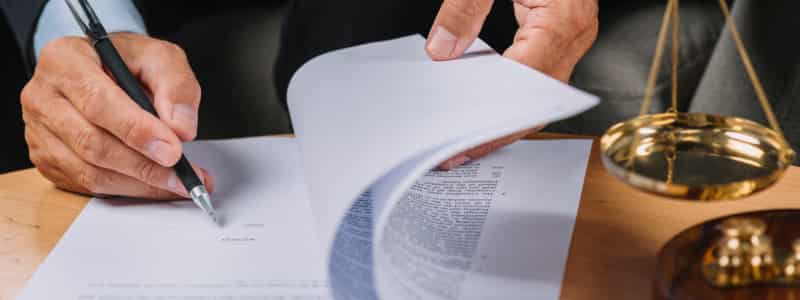A power of attorney is a person you can appoint to manage your financial affairs. Appointing a power of attorney is usually for a specified time, however there may instances where you may want to revoke it. In this article, we’ll explain how you can revoke a power of attorney,
What is a Power of Attorney (POA)?
A Power of Attorney is a legal document where you appoint a person of your choice to manage your assets and financial affairs if you are unable to do so due to illness, an accident or your absence.
Revocation
To revoke an existing Power of Attorney, you need to notify your attorney in writing. This document should contain the date of revocation with your signature included. Should you fail to inform your Attorney of the revocation, your Attorney can legally continue to make decisions on your behalf.
When should I revoke a Power of Attorney?
There are a number of instances where you may want to revoke a power of attorney. Some of these include when:
- Your attorney is not fit to act
- Your attorney is no longer required
- They can no longer effectively act on your behalf
- You wish to appoint a new attorney
How to revoke your Power of Attorney
1. Notice
You should notify your Power of Attorney that you no longer require them to act. Hence, in order for the notice to become effective, your attorney must be notified of the revocation. To ensure the notice is completed, it should be:
- Delivered
- Signed
- Witnessed
- Written confirmation that their powers have ended
2. Capacity
Capacity is related to the mental state and ability of the person at the time of the legal document’s execution. You must be of sound mind to have legal authority to execute the Revocation of Power of Attorney document.
Enduring Power of Attorneys
The process is slightly different if you have appointed an Enduring Power of Attorney. An Enduring Power of Attorney is different to a Power of Attorney in that the appointment is still effective if you lose mental capacity. You will still need to provide notice in writing, however it has to be witnessed. Further, there are some circumstances where your Enduring Power of Attorney will be automatically revoked. These include:
- Death of the appointer
- Marriage of the appointer
- Your attorney dies
- Your attorney becomes insolvent or bankrupt
- They lose mental capacity
- They become your healthcare provider or paid carer
Finally
To conclude, revoking a power of attorney is a significant decision that needs to be seriously considered. Therefore, the steps for revoking a power of attorney must be followed carefully. If you have further questions about revoking a Power of Attorney it may be worth contacting a lawyer.






